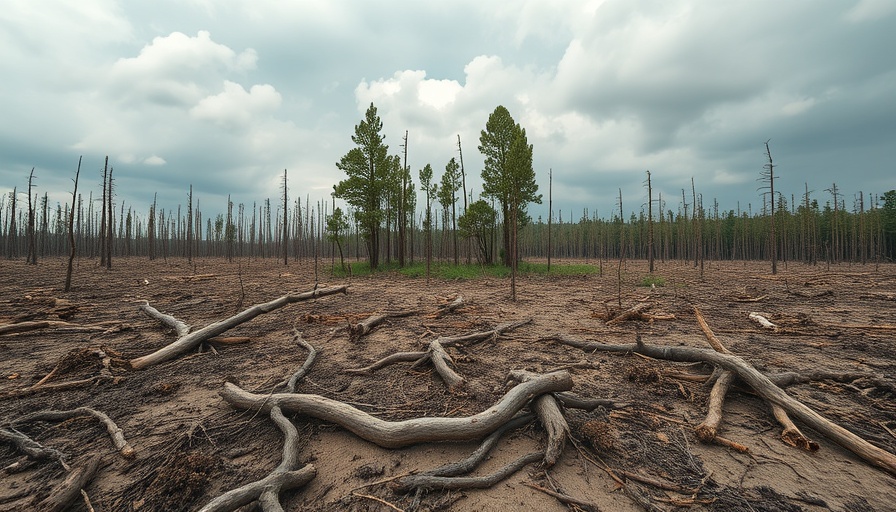
Understanding the Climate Crisis: A Call to Action
Climate change ranks among the most pressing challenges humanity faces, manifesting through extreme weather events, rising sea levels, and a staggering loss of biodiversity. The consequences are significant, threatening ecological balance and human well-being. Notably, coastal communities, particularly in the U.S., have suffered intensified hurricanes and wildfires, highlighting the urgent need for collective action.
Your Role in Combating Climate Change: 10 Actionable Steps
As daunting as climate change seems, every individual can contribute to a solution. A collaborative approach involving personal lifestyle adjustments can significantly impact the environment. The following strategies, aided by insights from AI, provide practical avenues for individuals looking to make a difference.
1. Reduce Your Energy Consumption
Every small action counts. Energy consumption remains a primary contributor to greenhouse emissions. You can begin reducing your carbon footprint through straightforward measures: opt for energy-efficient appliances, switch to LED bulbs, and unplug devices when not in use. Consider scheduling an energy audit to pinpoint energy wastage.
2. Embrace Renewable Energy Sources
Supporting renewable energy is pivotal in lessening reliance on fossil fuels. Individuals can directly contribute by investing in solar panels or choosing energy providers that offer renewable options. Each step taken toward clean energy creates a ripple effect that encourages further sustainability efforts.
3. Reduce, Reuse, Recycle
The mantra of reducing, reusing, and recycling remains relevant. Start by minimizing single-use plastics in your daily life. By reusing bags and containers and recycling materials, we can significantly decrease landfills and promote resource efficiency.
4. Choose Sustainable Transport
Transportation is a major contributor to emissions. Reevaluating travel choices can help. Consider walking, biking, or using public transport whenever feasible. Carpooling or investing in electric vehicles can also make a substantial difference over time.
5. Support Local and Sustainable Businesses
Your purchasing decisions shape the market. By choosing to buy from local and sustainable businesses, you support eco-friendly practices and encourage community resilience. Research businesses that prioritize sustainable practices and contribute to reducing overall environmental impacts.
6. Advocate for Change
Engagement in local and national conversations surrounding climate policy is crucial. Communicate with policymakers, participate in community activities, and raise awareness on environmental issues. Individual voices can drive significant legislative change.
7. Stay Informed and Educated
Knowledge is power. Staying informed about climate change, its impacts, and solutions can empower you to act. Utilize online resources, attend workshops, or join community groups focused on environmental education.
8. Optimize Water Usage
Water conservation directly links to energy conservation. Using water-efficient fixtures and reducing unnecessary water wastage can lessen the energy required for water heating and delivery.
9. Plant Trees and Support Reforestation
Trees are essential carbon sinks. Participate in local tree-planting efforts or support organizations committed to reforestation. Each tree planted contributes to cleaner air and enhanced biodiversity.
10. Encourage Others
Share your knowledge and practices with friends and family. Encourage conversations about climate change and collective action within your social spheres. Creating a community devoted to climate action amplifies individual efforts.
Future Trends: The Promise of Technology in Addressing Climate Challenges
As we move forward, integrating AI and other technologies could revolutionize our approach to climate change mitigation. Innovative solutions will play a critical role in monitoring emissions, optimizing energy usage, and fostering sustainable business models. Embracing such advancements will be essential for achieving long-term sustainability.
A Collective Effort for Change
Understanding that climate change is a shared responsibility can transform how we approach our individual roles in this critical fight. Each action taken contributes to a larger fight against environmental degradation. As we implement these strategies in our daily lives, we foster a hopeful future rooted in sustainability.
By knowing the impact of your actions and making informed choices, you become part of the solution. Now is the time to act. Together, we can create a healthier planet for present and future generations.
 Add Row
Add Row  Add
Add 



Write A Comment